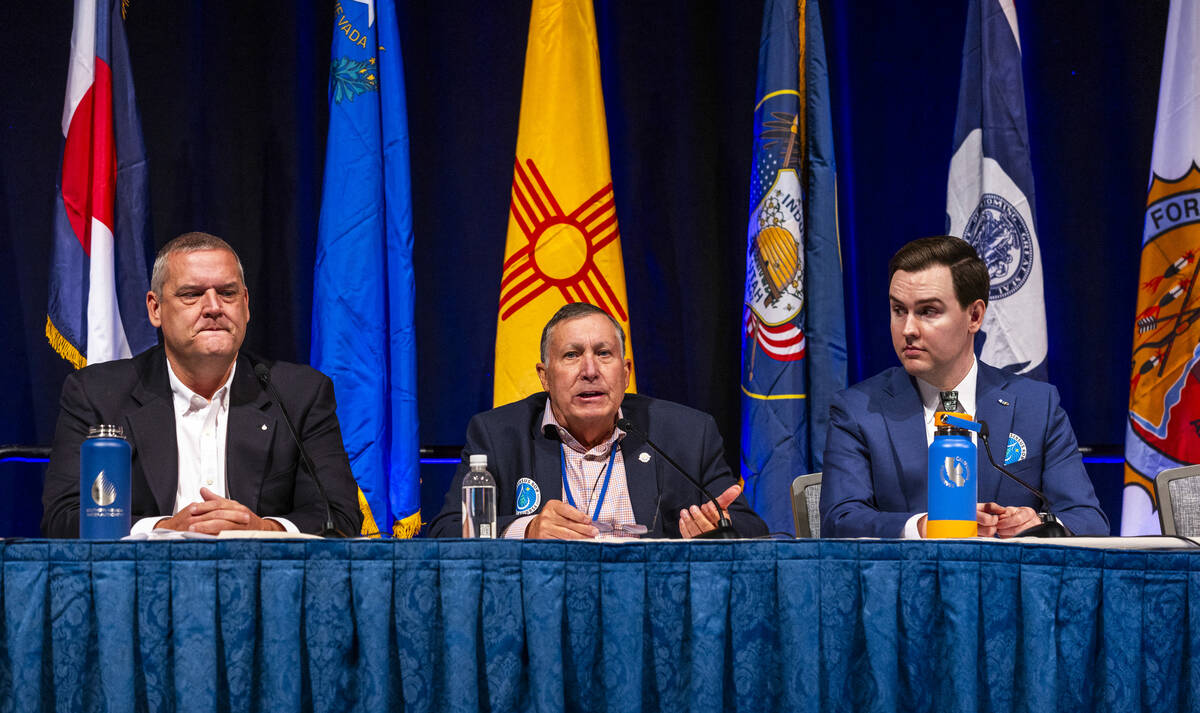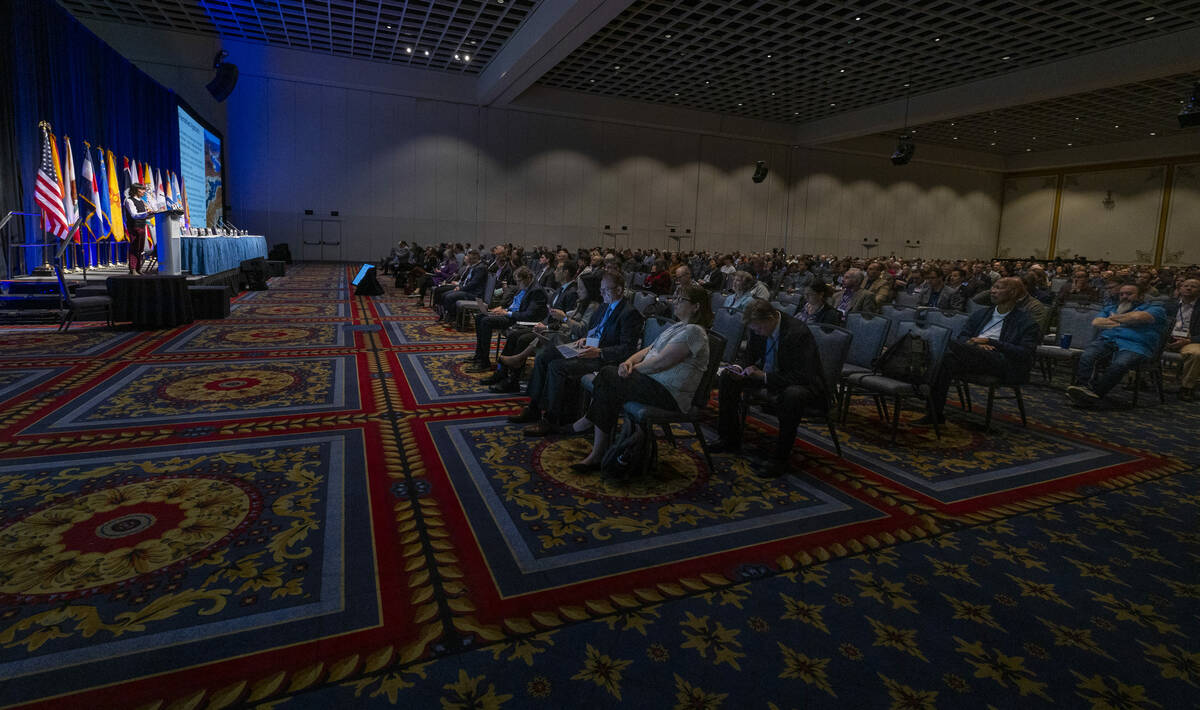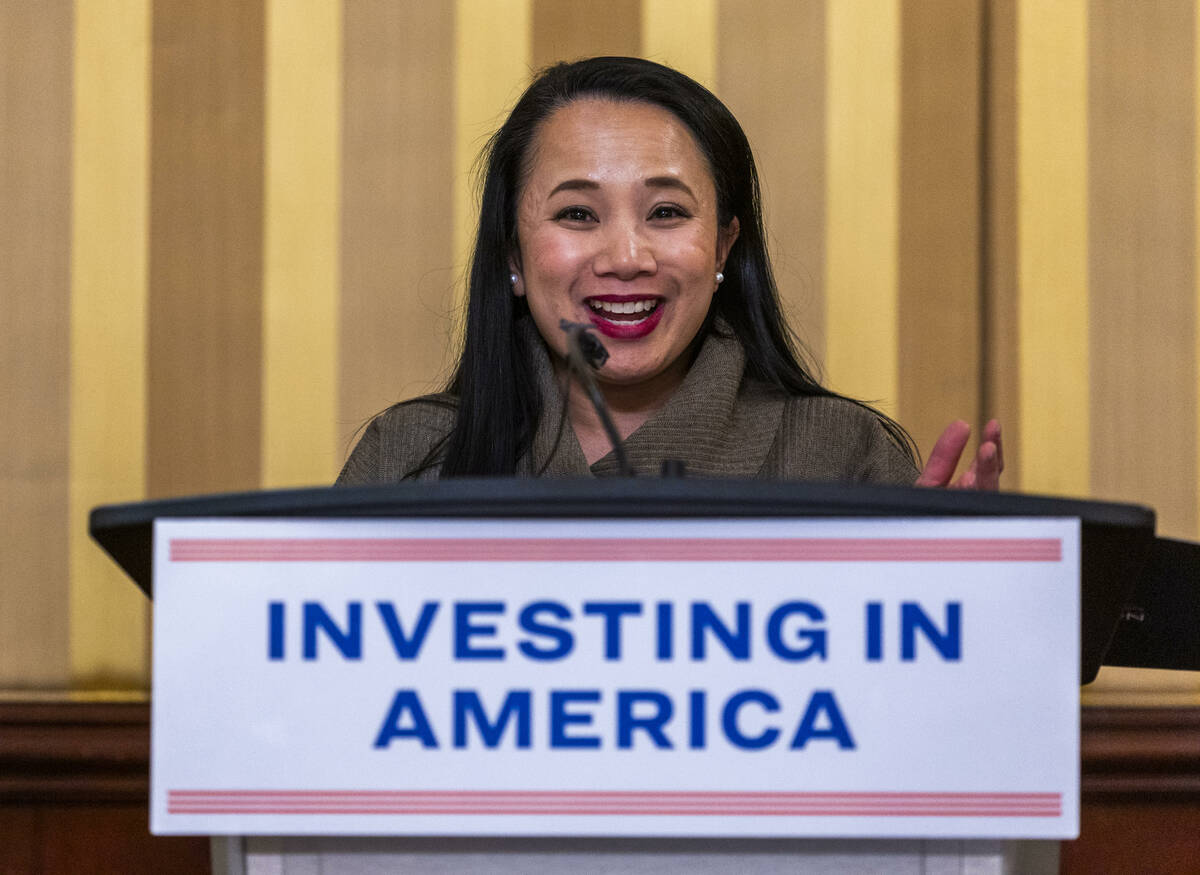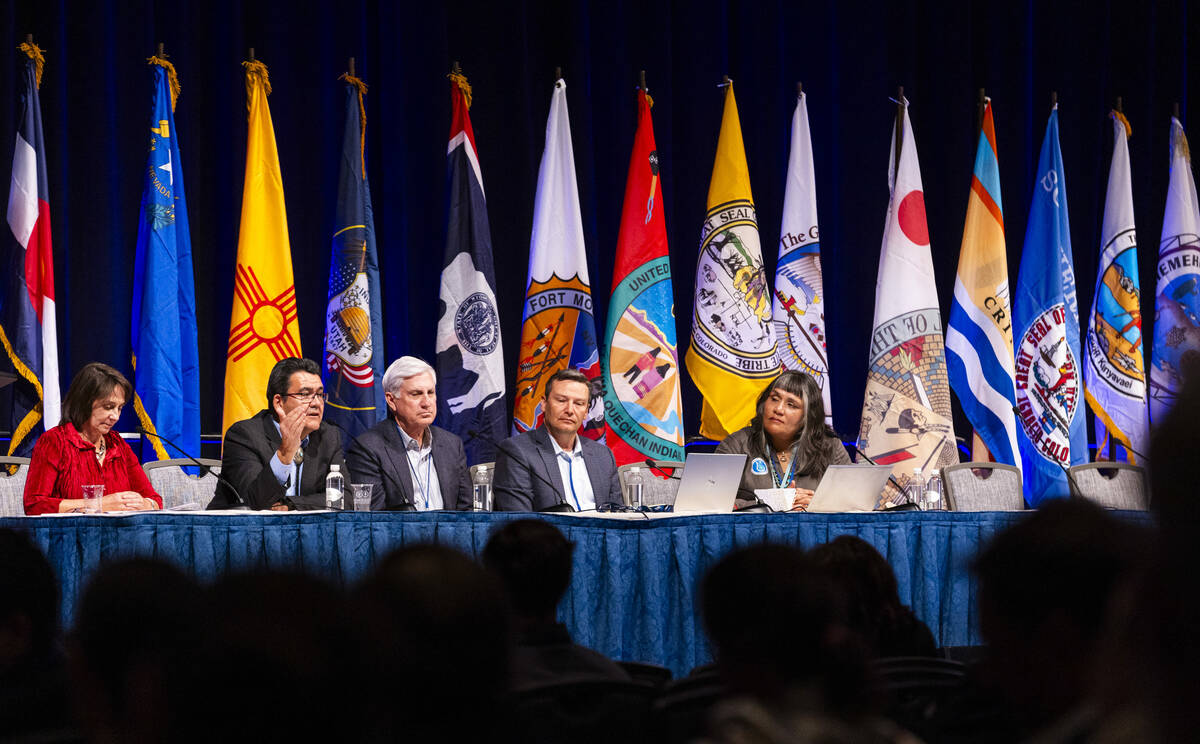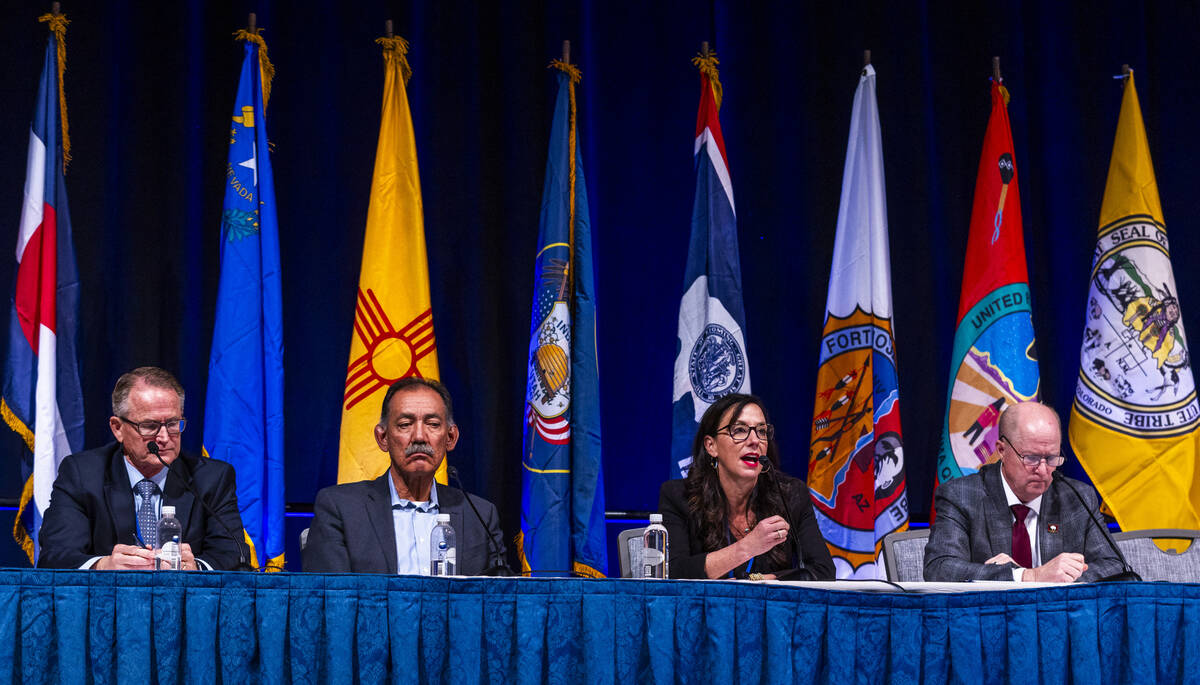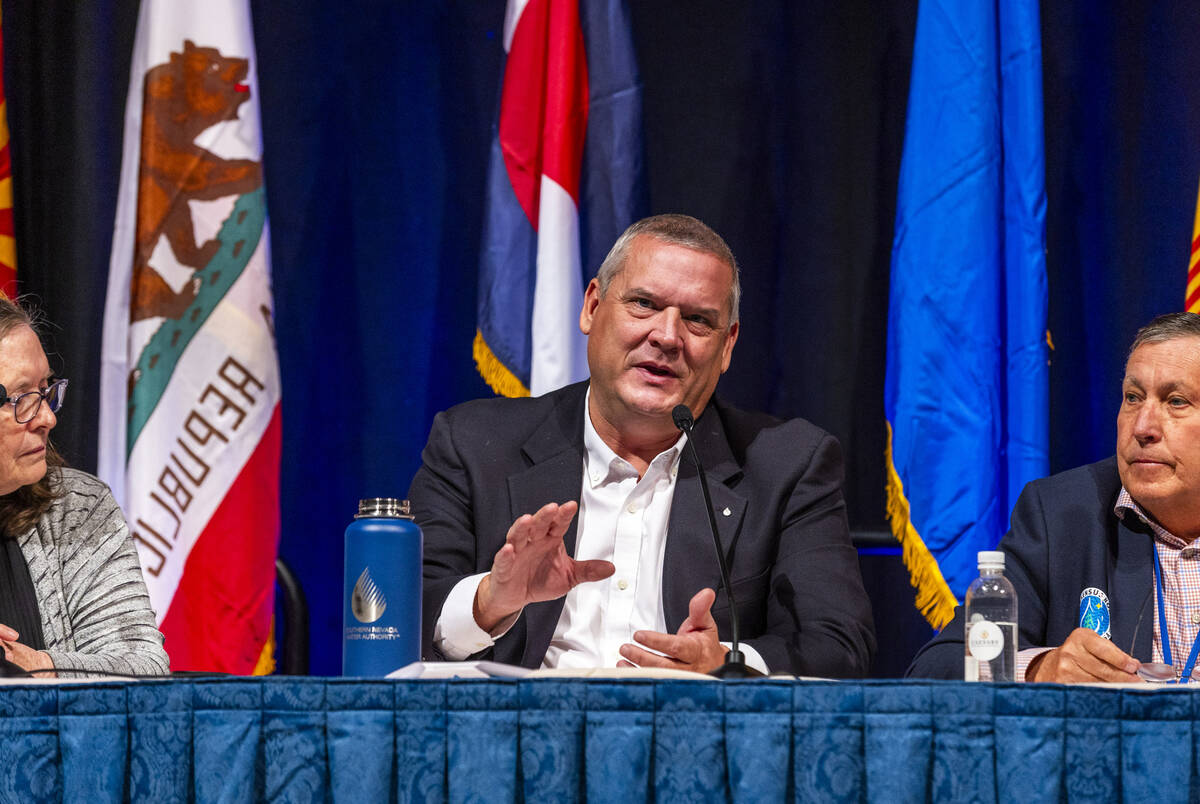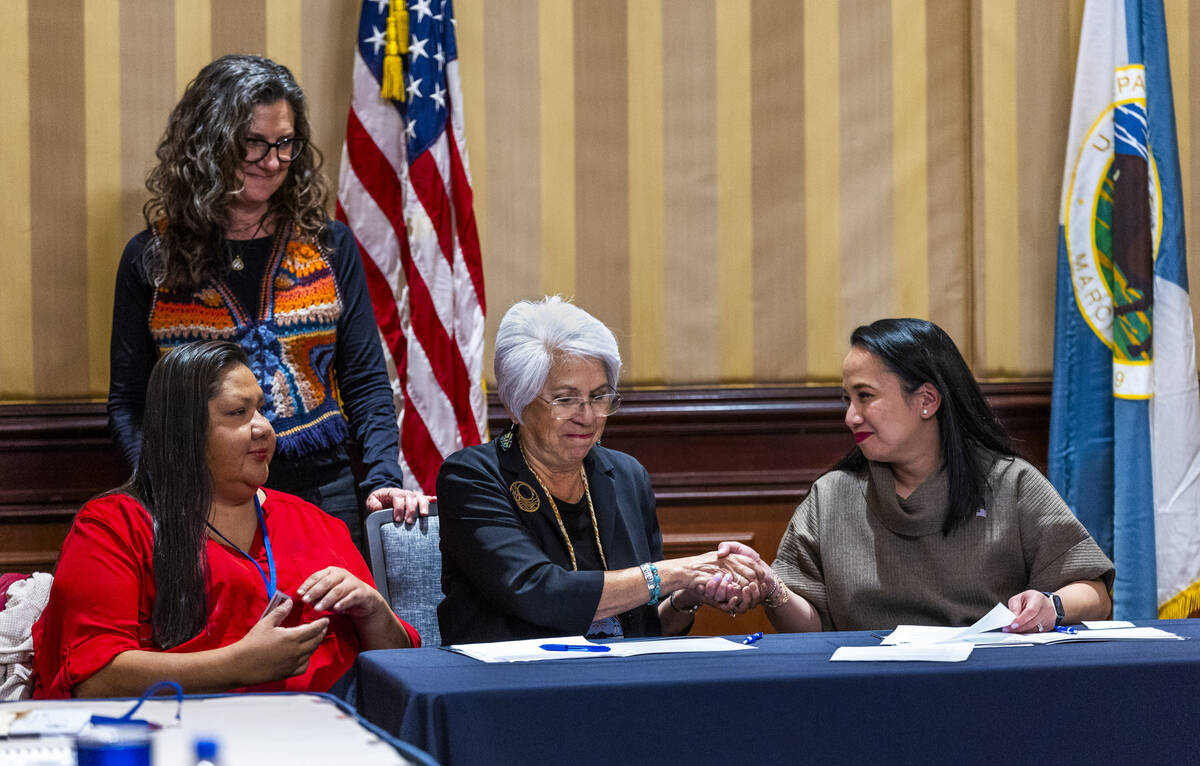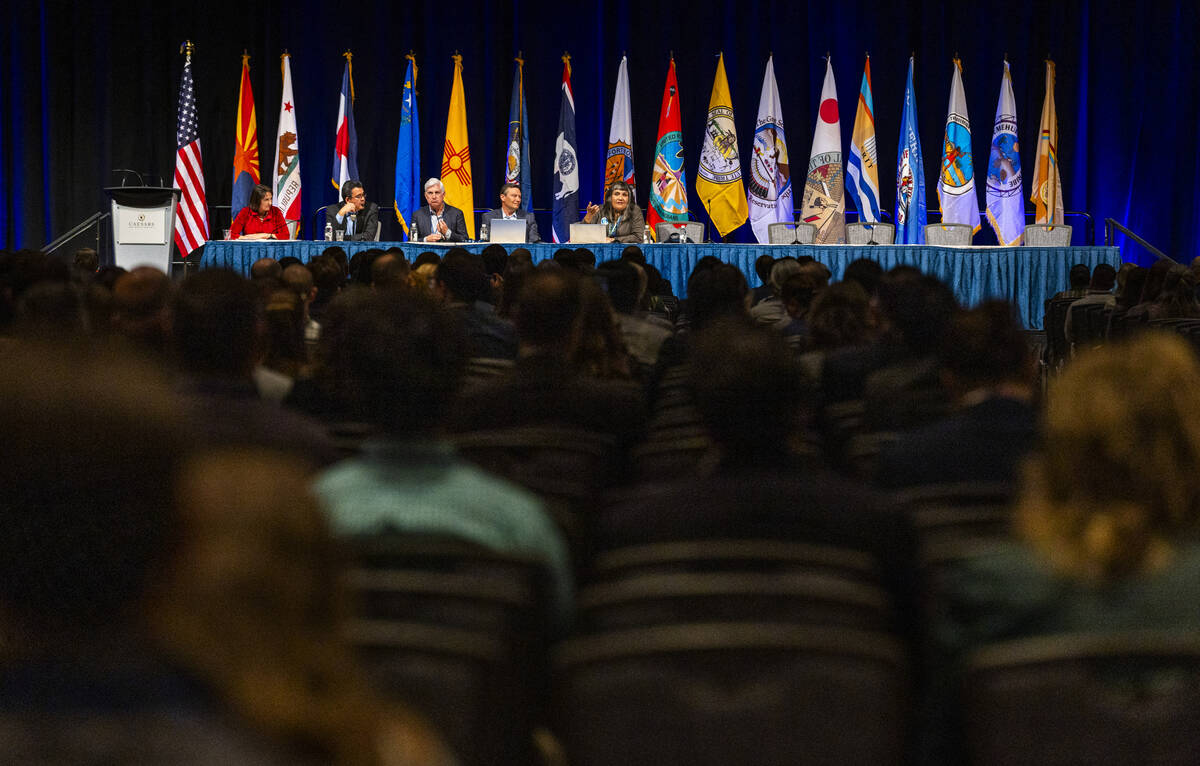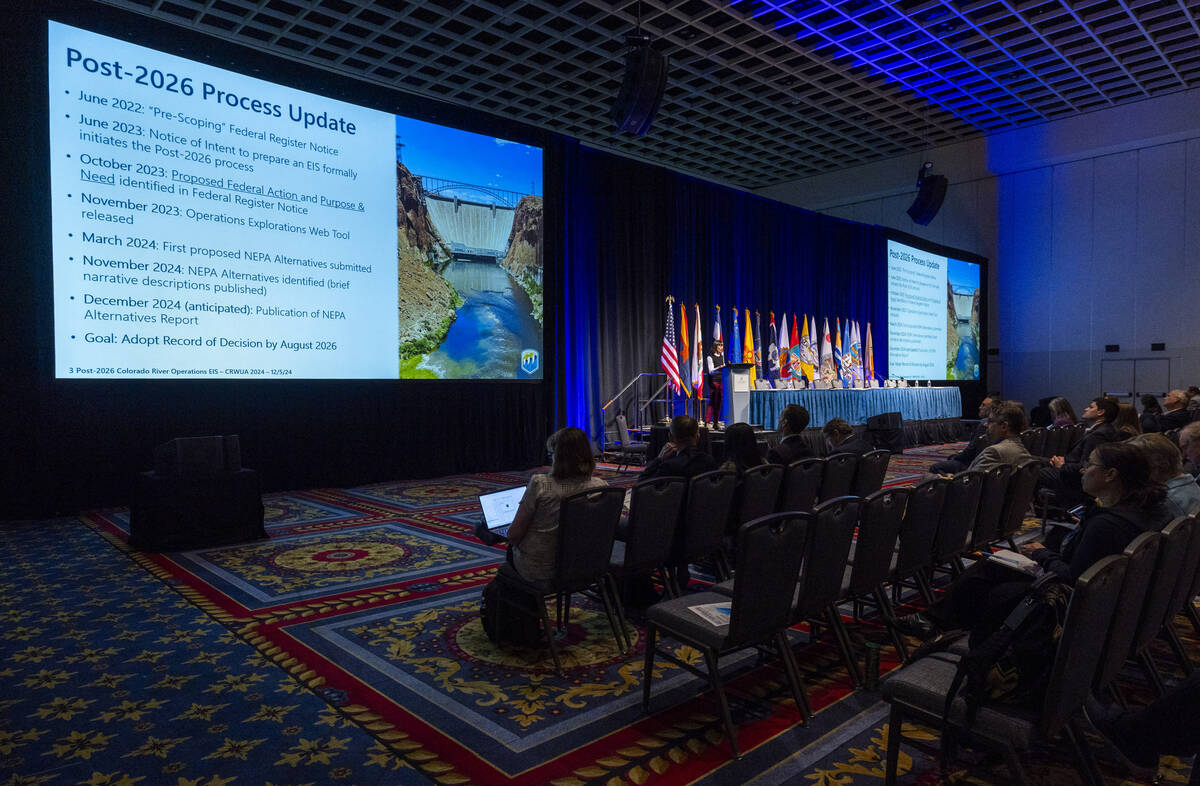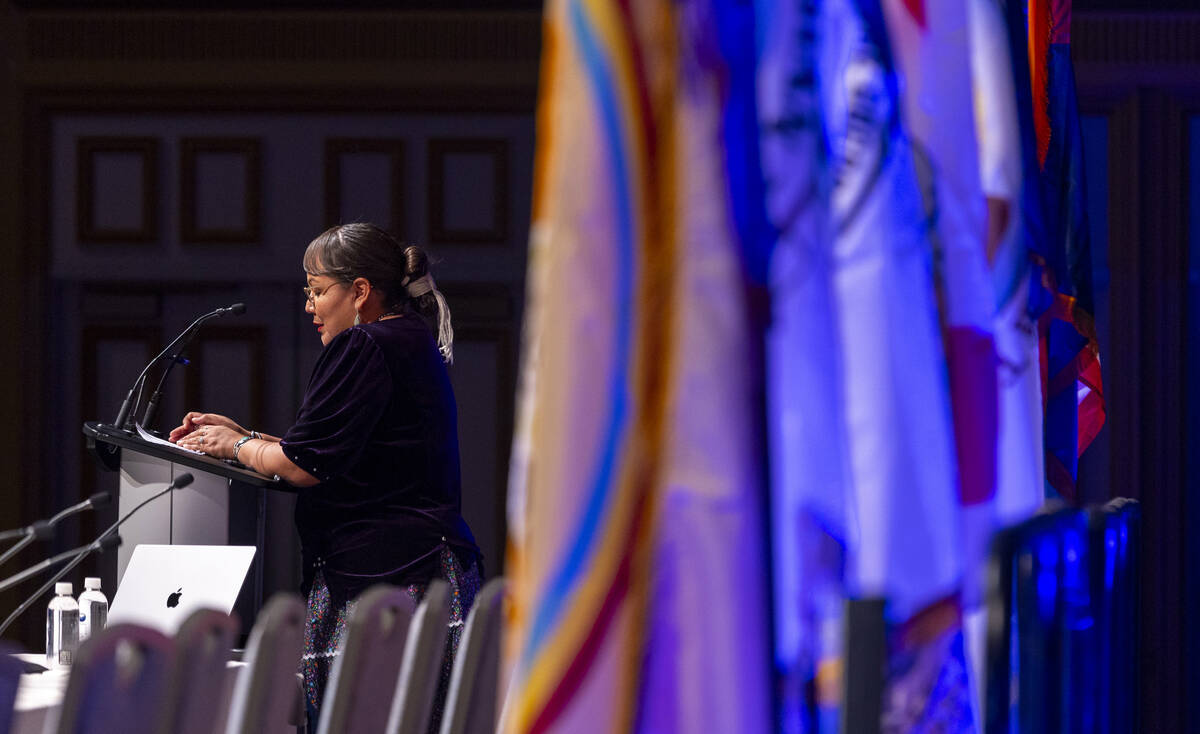Here’s what you need to know about this week’s Colorado River conference
The theme of the week may have centered on piecing together ways to manage the Colorado River after 2026, but Nevada and its six neighboring states in the basin walked away with a fractured puzzle they aren’t close to solving.
That foretold conclusion was expected out of the three-day Colorado River Water Users Association conference in Las Vegas, a yearly gathering of the basin states, Native American tribes and representatives of northern Mexico to confront the most pressing water issues of 40 million people who call the basin home.
In an unusal move, state negotiators declined to meet as a group, something most viewed as a missed opportunity as a deadline looms to come to a consensus on post-2026 river guidelines. Two coalitions of states, the Upper and Lower Basins, instead squabbled with one another in separate panels, leaving little insight as to when they will reach an agreement.
Jennifer Gimbel, senior water policy scholar at Colorado State University’s Colorado Water Center, compared the river’s situation to the classic story of “Alice in Wonderland.” It will take a concerted, collective effort to get Alice, or the Colorado River Basin, out of the deep rabbit hole she found herself in, Gimbel said.
“Next in ‘Through the Looking Glass,’ Alice comes across Tweedledee and Tweedledum. You can guess who those are: the Upper Basin and the Lower Basin,” Gimbel joked.
Southern Nevada, a region that sources 90 percent of its water from Lake Mead, will be directly affected by the operating plan that states decide on.
The plans could determine which state loses the most water in times of intense shortage on the river — something not so far-fetched for those who have seen Lake Mead’s “bathtub ring” marking where water levels once were. Climate change is altering the flow of the river, leading states to take a hard look at proposed guidelines that will last 20 years.
Here’s what Nevadans should know about the forum held in Las Vegas and what to expect in the new year on Western water management as President-elect Donald Trump takes office:
More modeling needed for ‘Basin Hybrid’ alternative
Absent from remarks negotiators made about interstate talks was the so-called “Basin Hybrid” option, meant to be a compromise.
The Lower Basin states of Nevada, California and Arizona have argued that the Upper Basin states — Colorado, New Mexico, Utah and Wyoming — should be required to take cuts to their allotments from the river in extreme shortage conditions, while the Upper Basin maintains that isn’t a fair assessment because of the shortages its states already take from poor snowpack and little reservoir storage.
In November, the Bureau of Reclamation notably didn’t include proposals from the Lower and Upper basins in the agency’s list of five it would consider going forward. The bulleted lists released for the Basin Hybrid proposal offered little detail on how it melded together the concerns of the two groups of states.
At the conference this week, the Bureau of Reclamation offered more details about what each proposal contains, though a more thorough analysis will be released by the end of the year.
Negotiators from both the Lower and Upper basins told the Las Vegas Review-Journal that modeling behind the Basin Hybrid proposal that shows how it would work in practice is necessary to make any meaningful conclusions.
“We’ve actually requested, as seven basin states, any modeling that’s associated with how they developed those alternatives, so I can’t comment on those,” Becky Mitchell, Colorado’s representative on the Upper Colorado River Commission, said on Thursday. “We’re anxiously awaiting further details.”
Touton bids farewell, Trump yet to select new water commissioner
The conference marked the last of the Biden administration, where Las Vegas native Camille Calimlim Touton has served in the top post at the Bureau of Reclamation.
Trump hasn’t hinted at who will take over the federal agency, decisions from which make a difference in how and when water is conserved across the West. Many agree that aggressive conservation under Touton helped restore Lake Mead levels after they dipped to a record low in 2022.
“The river demands nothing less than the best of us — ” Touton said in a closing talk on Friday, “collaboration over division, courage over complacency and a steadfast belief that the future is what we’re working towards.”
Trump’s election didn’t cloud much of the discussions at the conference. Insiders have said Colorado River management is generally immune to the changes seen in the White House.
Gov. Stephen Roe Lewis, of the Gila River Indian Community near Phoenix, said he’s unfazed by what may happen in Washington, D.C.
“I’m not worried about the next administration, as some have otherwise indicated,” Lewis said. “The Trump administration delivered the (Drought Contingency Plan of 2019), as we all remember, and I remain hopeful that they will help us finish this journey that we’re on.”
Arizona tribes on precipice of water access
Throughout the conference, some wore stickers that said “Consensus Now, Free NAIWRSA.”
Those were in reference to the Northeastern Arizona Indian Water Rights Settlement Agreement, a pending settlement between Arizona and the Navajo Nation, the Hopi Tribe and the San Juan Southern Paiute Tribe that would grant water security.
One in three people who live on the Navajo Nation don’t have access to clean water, mostly because of a lack of pipes and other infrastructure for which the settlement would fund construction.
Navajo Nation President Buu Nygren said water managers hope to finalize it by Tuesday, then send it to Congress for approval. Nygren, who said he grew up on tribal land without running water, said his people would “finally have access to the water they live right next to.”
“We’re not asking for much,” Nygren said. “We’re asking for what’s rightfully associated with where we live, within the boundaries of the Navajo Nation. Let us be able to have an opportunity to plan for our future.”
Tribal concerns were well represented at the conference in several panels. Five Colorado River tribes signed agreements with the Bureau of Reclamation on Thursday that will fund projects to improve their respective water systems.
All efforts made to avoid Supreme Court
The ongoing disagreements over post-2026 guidelines have left the door open for a long, expensive Supreme Court case.
It made headlines when Arizona’s negotiator, Tom Buschatzke, asked his state’s governor to set aside $1 million in case the state needs to retain a lawyer.
“I have to do my due diligence for all potential outcomes,” Buschatzke said.
The Southern Nevada Water Authority, Nevada’s agency that deals with river talks, hasn’t publicly said whether it may be taking the same approach.
However, water managers made it clear this week that litigation is an undesired last resort that could take two decades and cost millions in taxpayer dollars. It’s not clear when the seven states will return to the negotiating table.
“We believe compromise is possible. We think it’s the first, second and third best option,” said John Entsminger, Nevada’s negotiator. “But we need a dance partner, so let’s get back to the table and make this happen.”
Contact Alan Halaly at ahalaly@reviewjournal.com. Follow @AlanHalaly on X and @alanhalaly.bsky.social on Bluesky.




